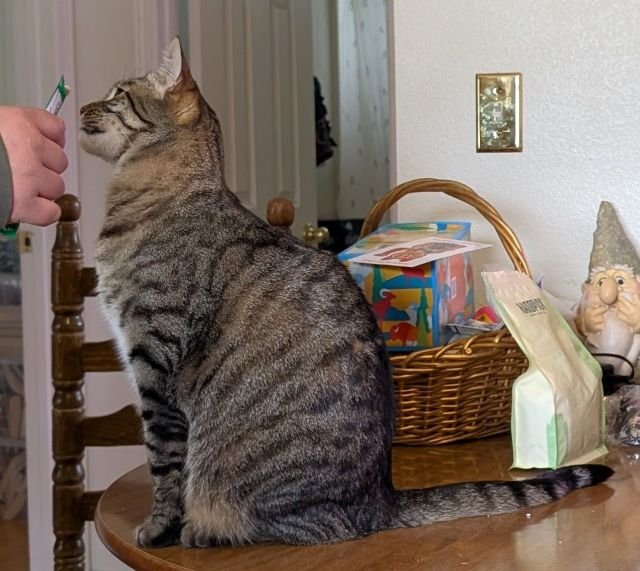“Yemeni coffee is number one,” announced Ibrahim Alhasbani, who founded Qahwah House in 2017, soon after immigrating to the U.S. Alhasbani’s rapidly expanding chain of Yemeni coffee shops now includes 23 locations from Texas to New York.
Over pistachio lattes at a Qahwah House in Dearborn, Mich., he explained that Qahwah is the Arabic word for coffee.
“I want to share the culture. I want to share the coffee. I want to share the history,” Alhasbani said.
Hundreds of Yemeni coffee shops have opened in recent years on city blocks and in strip malls all over the U.S. Other chains include Haraz, MOKAFÉ and Qamaria Yemeni Coffee Co. Yemen is an ancient birthplace of the coffee trade, and immigrants fleeing its civil war have brought their culture here in the form of cafes.
This wave of Yemeni coffee houses is distinctive for their beautiful designs, late hours, coffee drinks with cardamom and ginger, and desserts that range from hazelnut kunafa cheesecake (made with thin shreds of pastry dough) to decadent chocolate-dipped cakes.
“The desserts are just phenomenal,” said Fionn Pooler. He covers the specialty coffee industry in his newsletter, The Pourover. Pooler, who is based in Scotland, has followed the rise of Yemeni coffee shops in the U.S. and the U.K. He was particularly impressed by the pastries he experienced at London’s Qima Café. “Most coffee shops, you get nice pastries but not really to the same kind of level,” he said.
As for the coffee, Yemeni beans enjoy a mystique among connoisseurs because of their rich history and flavors, Pooler said, and what he’s tasted lives up to the hype.
“I think probably that is partly because the coffee that’s made it to us recently has been really the best of the best,” he said. “Only the best coffee is getting out.”
Coffee prices have skyrocketed worldwide because of climate change, affecting exports everywhere. “There’s like hijackings,” Poole said. “There’s people holding on to coffee because they don’t want to sell it, because obviously, the price can keep going up.”
Most coffee consumed in the U.S. comes from Brazil and Colombia. It’s subject to the same 10% tariffs as coffee from Yemen. Alhasbani imports his coffee from a family farm near the capital, Sanaa. He said getting it to the port in Aden, hundreds of miles south, has become increasingly difficult.
“Before the war, it was like 10 hours driving to take the shipment from Sanaa to the port,” he said. “With the war, it’s like two days sometimes.”
And there’s no guarantee that a shipment of Yemeni coffee — which can represent a farm’s entire growing season — will even make it, added coffee entrepreneur Mokhtar Alkhanshali. He grew up in coffee-obsessed San Francisco, at a time when few people outside the Yemeni community knew much about the country’s coffee. These days, the Bay Area enjoys a wealth of Yemeni coffee houses, including Delah Coffee, Heyma Yemeni Coffee and Mohka House.
“The Yemeni cafe movement is very, very new,” Alkhanshali said. He runs a coffee business called Port of Mokha. (The drink known as “mocha” derives its name from the old Yemeni port of Mokha.) “I get really emotional when I walk into these cafes and I see Yemen coffee becoming a thing.”
Alkhanshali is the hero of The Monk of Mokha, a 2018 nonfiction bestseller by Dave Eggers. It followed his quest to bring single-origin Yemeni coffee to the United States. Now, he says, he fears for the fragile economic balance helping rural families in a county suffering from poverty and widespread food insecurity.
“Most farmers in Yemen are smallholder farmers. They rely on these coffee trees in their villages,” he says. “This thing is just kicking off, and it could be blocked because of unfortunate policies.”
U.S. policies regarding Yemen have gone back and forth over the past decade. The Trump administration first designated the Houthi rebels as a terrorist organization in 2021, but the designation was revoked by Democratic President Joe Biden, largely to assist with Yemen’s humanitarian crisis, often described as one of the worst in the world. President Trump redesignated the Houthis as a terrorist organization last month, in March. This means sanctions and penalties for anyone providing material support to the group.
“Ninety percent of Yemen coffee, I would say, comes from the territories that are controlled by the Houthis in Yemen, the mountain regions across Ibb, in Sanaa and these provinces,” Alkhanshali said. “What this means is that any trader or exporter or importer buying coffee from these regions could technically be categorized as supporting terrorism, because it could trickle back down to this organization.”

At one of his Qahwah House coffee shops in Dearborn, Ibrahim Alhasbani said he was more concerned about high tariffs on Chinese-made paper coffee cups and Indian cardamom than legal imports of Yemeni coffee. But the war has affected everyone, he added. His mother and sister both recently died because the country’s infrastructure has been shattered, and they were unable to receive adequate medical care for treatable problems. The war has killed around a quarter of a million people, according to the United Nations, many thousands of them civilians.
When political commentators and comedians joked about a journalist accidentally being included in an unofficial groupchat with high-ranking U.S. officials using emojis to celebrate airstrikes, including in the city of Sanaa, Moktar Alkhanshali was heartsick.
“That terrified my family,” he said. “And you’re talking about a city that has over 3 million people who live in it. Sanaa was attacked in really high-density residential neighborhoods, which hadn’t happened that way in a long time, actually.”
U.S. airstrikes continue to pound Yemen, with dozens of civilian casualties over the past weeks. Ibrahim Alhasbani observed that it is easier to see people as human beings when you actually see them. He wants Qahwah House, he said, to be a welcoming place that helps Americans recognize Yemenis not as people associated with war and famine, but as the people who brought the world coffee.
“We are behind every smile in the morning,” he said with pride.
Copyright 2025 NPR

















